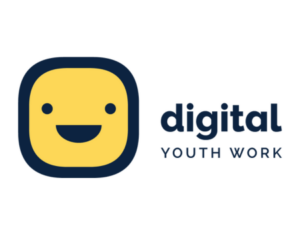Our digital youth work lead Hilary Phillips writes about the implications of AI and other new technologies for our sector and how we can navigate the challenges ahead.

This blog originally appeared on our digitalyouthwork.scot website, filled with all the information, tools and support you need for your digital youth work delivery. Visit our new Digital Learning Zone to find out more.
Two headline news events happened south of the border recently that have a direct relevance for digital youth work here in Scotland. The Online Safety Bill became law after a lengthy process and much heated debate. And Artificial Intelligence was the topic of the day, with Prime Minister Rishi Sunak making a speech that heralds the AI World Congress, taking place in London at the end of November.
Why are these events so significant for us? As a community that is committed to supporting young people in their online lives we have an active role in understanding the digital world where we live and work. And as people whose work includes using digital games, social media and many digital tools, apps and platforms we have a responsibility to do that in a safe way that protects rights and builds capacity. Of course, that involves assessing risk and yesterday’s high profile events are both strongly connected with recognising and responding to risk. For us, we especially want – and need! – to apply that thinking to our work with young people.
In the Prime Minister’s speech about AI, he said he was pro-technology, wanting to enable progress, and also committed to “meeting the risks head-on”. It was a speech about both opportunities and threats. He quoted the statement made earlier this year by leading AI experts: “Mitigating the risk of extinction from AI should be a global priority alongside other societal-scale risks such as pandemics and nuclear war”. That ultimate risk might feel like the stuff of I-Robot and the more recent movie The Creator, which is set in 2070 and features a war against AI. The announcement in the speech is of the world’s first AI Safety Institute, to be located in the UK, enabling the UK and the world to understand the risks and benefit from AI, rather than the opposite.
There’s no doubt that Artificial Intelligence is a high profile topic right now, as we all try to get to grips with what the new technology means for us, how we can benefit in our work-roles, and how we can use new tools and technologies in our work with young people. At a recent meeting of the Digital Youth Network it was the topic that members were most looking for input and guidance on. And of course that interest is way wider than youth work. SCVO’s Digishift resources include some inspiring talks on AI and the Scottish AI Alliance of an AI Playbook, described as an open, practical guide on how to do AI in Scotland.
While we might see AI as a long term risk that we need to learn how to manage, we are all acutely aware of the everyday risks that the online world represents in the here and now. And that’s what the other story of the day was about.
The Online Safety Act seeks to address illegal and harmful content online. It imposes legal requirements on search engines and internet service providers, including those providing pornographic content. The Act gives new powers to the Office of Communications (Ofcom), enabling them to act as the online safety regulator.
Most significantly for digital youth work, the new online safety laws will mean social media companies will have to keep underage children off their platforms. According to government guidance about the Online Safety Bill, “Social media companies set the age limits on their platforms and many of them say children under 13 years of age are not allowed, but many younger children have accounts. This will stop. Different technologies can be used to check people’s ages online. These are called age assurance technologies. The new laws mean social media companies will have to say what technology they are using, if any, and show they are enforcing their age limits.”
At YouthLink Scotland we choose to run our Digital Youth Work conference on Safer Internet Day because we believe that youth workers have a crucial part to play in helping young people navigate their online lives.
Watch a short video about last year’s conference.
Of course that’s not the online thing we’re doing. We are listening carefully to Ofcom as the regulator in this area, strengthening our own digital safeguarding policy, and sourcing relevant expertise.
For organisations looking to develop digital safeguarding policy, Digisafe from Catalyst provides step-by-step guidance through the process.
Internet Matters provides detailed information about popular apps and platforms used by children and young people, associated risks and potential actions to take.
The Internet Watch Foundation leads on identifying and removing child sex abuse imagery.
As well as legislation, part of the answer is to help young people develop a personal awareness of how to stay safe in an online environment. This includes understanding how to keep a phone or tablet secure, protecting yourself by using passwords and recognising scams and phishing. Protecting from online harms and developing cyber resilient practice go hand-in-hand.
Our short Cyber Resilience e-learning resource is focused specifically for youth workers.
Research that we commissioned earlier this year shows a clear connection between digital youth work and building cyber resilience. Data from the digital youth work research shows that digital projects introduce young people to cyber resilience and online safety. 27% of projects had this as a focus compared to only 4% of non-digital projects.